3 Lenses of Pain and How to Address Them for Lasting Relief
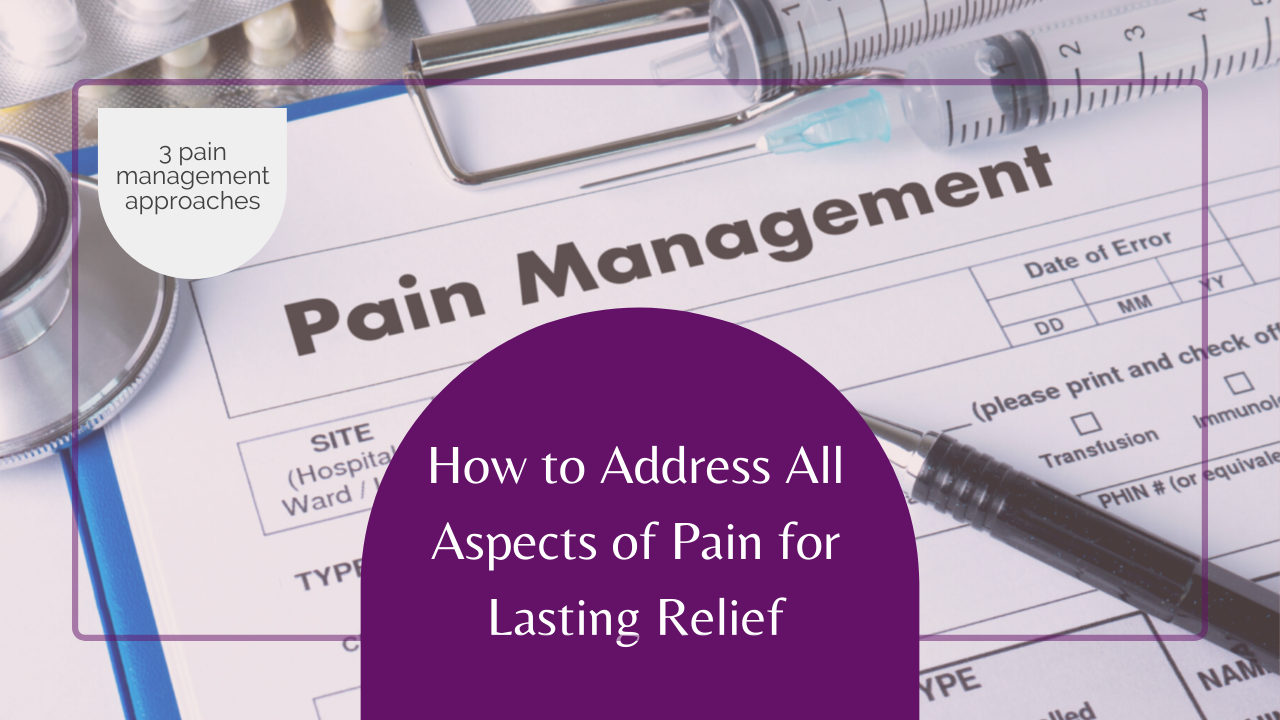
Combine These 3 Approaches to Get Pain Control, Not Just a Band Aid.
Have you been searching high and low, far and wide for something, anything that will provide lasting pain relief? Only to find yourself wasting valuable time, money, and energy on gimmicks or gadgets that don't cut it.
Fear sets in when pain persists despite trying physical therapy, massages, bracing, chiropractic care, and injections - and eventually your doctor seems to think it's all in your head.
But deep down, your intuition tells you this pain isn't all in your head. And actually, you're not wrong.
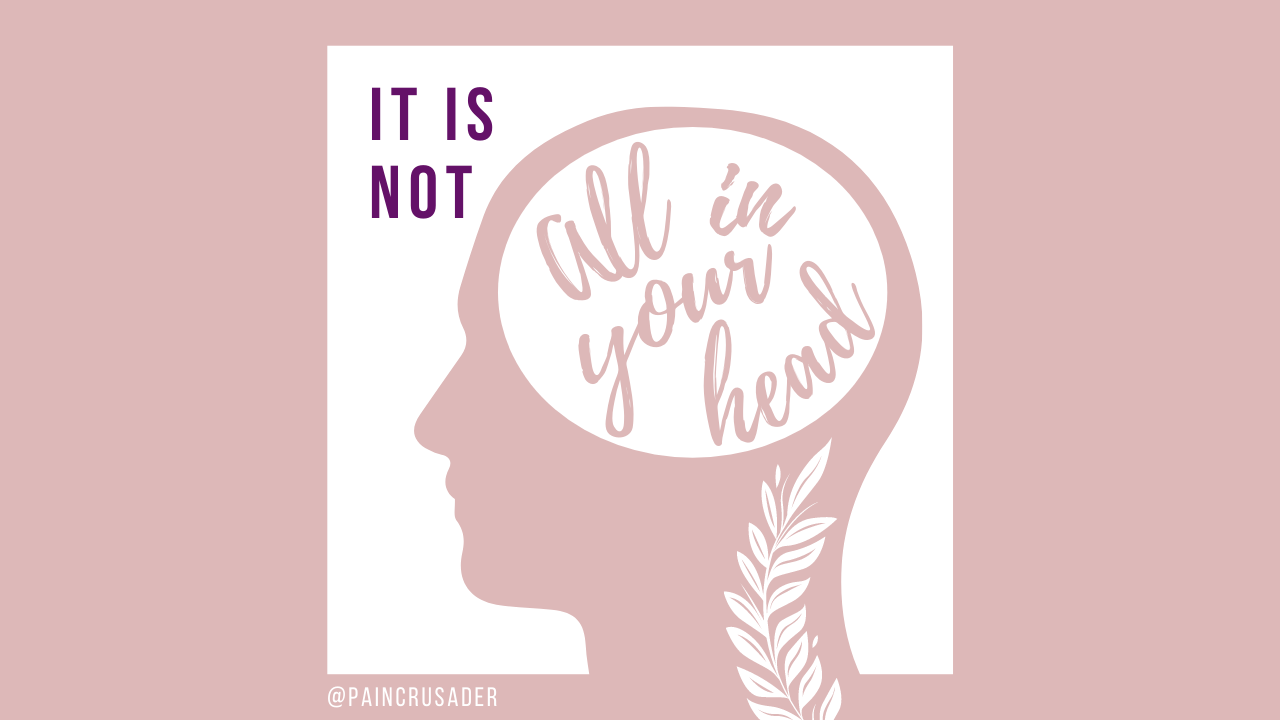
Traditional medical approaches view pain and treat pain from only one perspective. The problem is, there are at least 3 lenses to view pain through: the biomechanical, psychological, and neurological.
How we view and treat pain depends upon which lens we look at it through.
Most of the time, pain is viewed from a "biomechanical" perspective. The biomechanical approach has to do with the health of body structures, tissues, and movement.
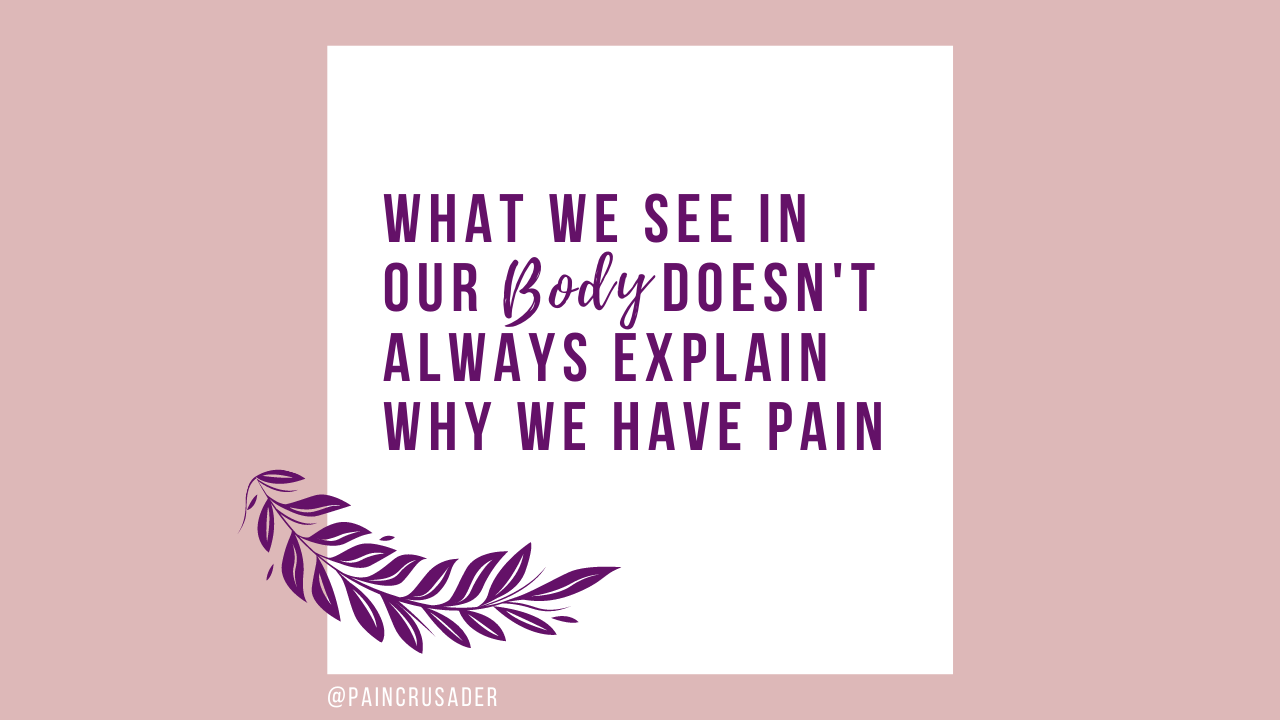
With this lens, we see structural issues, like tears, arthritis, bulges, strains, sprains. When we view pain through a biomechanical lens, we see faulty movements, stiff joints, weak muscles, bad posture, & poor coordination as the problems contributing to pain. Almost all traditional treatments for pain relief are based on this biomechanical approach.
But pain can also be viewed from a psychological perspective. The psychological approach to pain has to do with the mental, social, and spiritual aspects of pain.
This doesn't mean that pain is all in your head. And while no one likes talking about mental health, pain does often times involve suffering, depression, and/or anxiety. And its true, our mental health, social environment, and stress levels do certainly play a role in the pain experience.
We can't ignore this truth: How you feel influences your pain & pain influences how you feel. But I said it before and I'll say it again, that doesn't mean the pain is all in your head. It doesn't make the pain any less real.
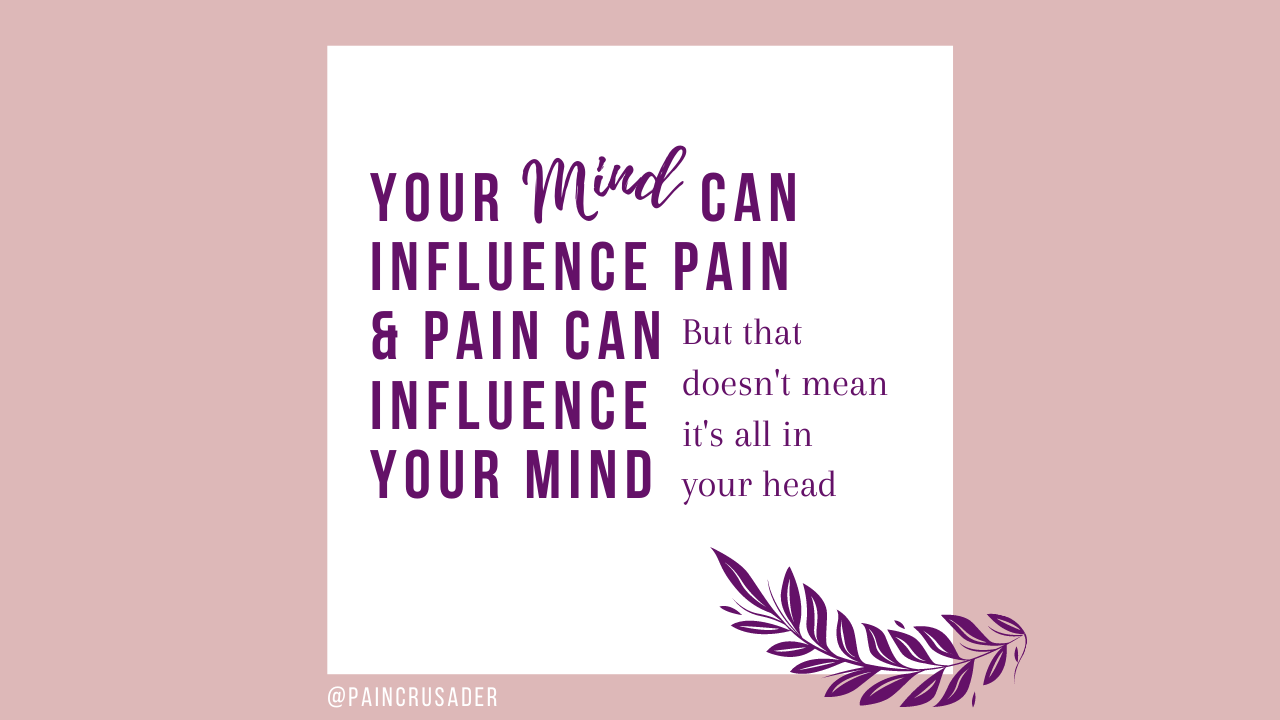
Pain is and of itself is not a psychological or mental condition. Having chronic pain does not mean your crazy. With that being said it is important not to deny that there is a psychological component to pain.
We can also look at pain from a "neurological" perspective. The neurological approach has to do with the health of the nerves, spinal cord, brain, autonomic nervous system, the immune system, the gut, and the endocrine system.
Through this lens we look a bit deeper at the nervous system, which transmits messages back and forth between the brain and the body. Scientific research has shown us that the health of our nervous system contributes to the pain experience.
We know that there are changes in the way our nerves communicate, changes in our nerve's resting level of excitement, changes in the nerve activity within our brains, and even changes in brain structure in individuals with chronic pain.
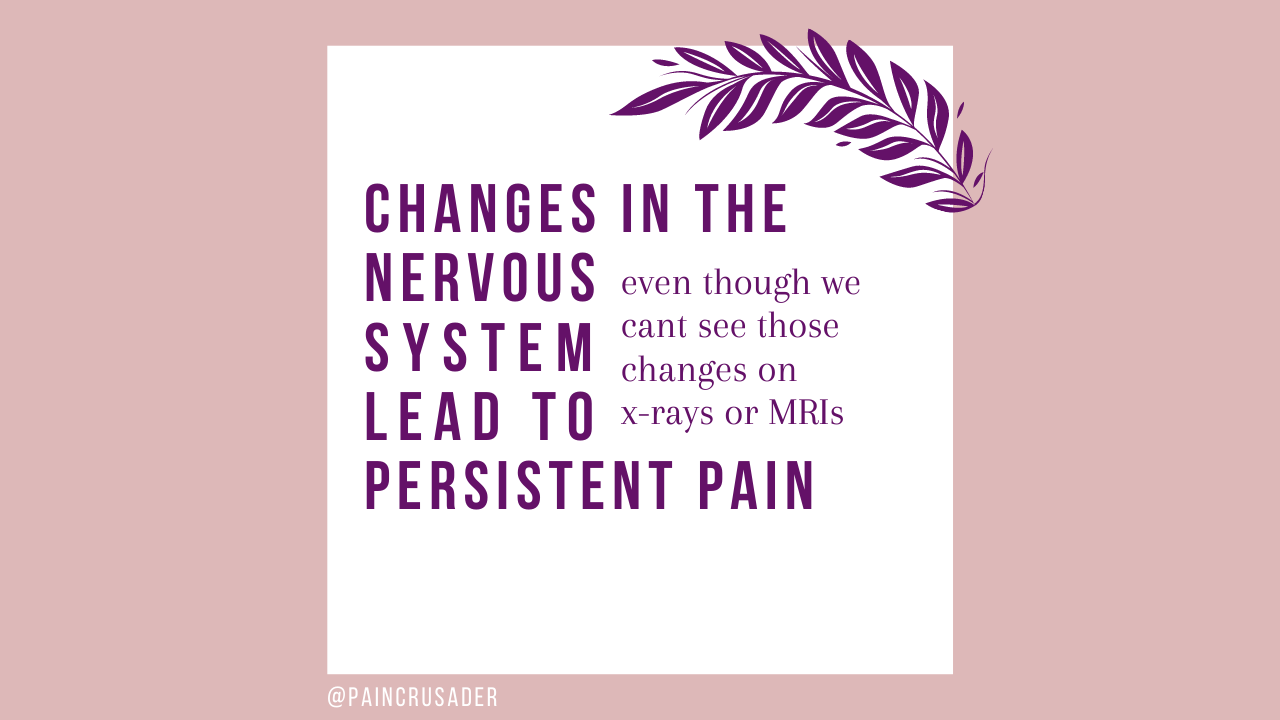
The good news is, we now have a few tricks that can help re-wire and calm down an over-active/over-protective nervous system. The neurological aspects of pain are the focus of my therapeutic approach.
It is important to be able to view pain through all three lenses and notice the differences between them. When we look at pain through the "neurological" lens, we are not ignoring the health of the body's structures and tissues, nor are we suggesting that its all in your head or your pain isn't real.
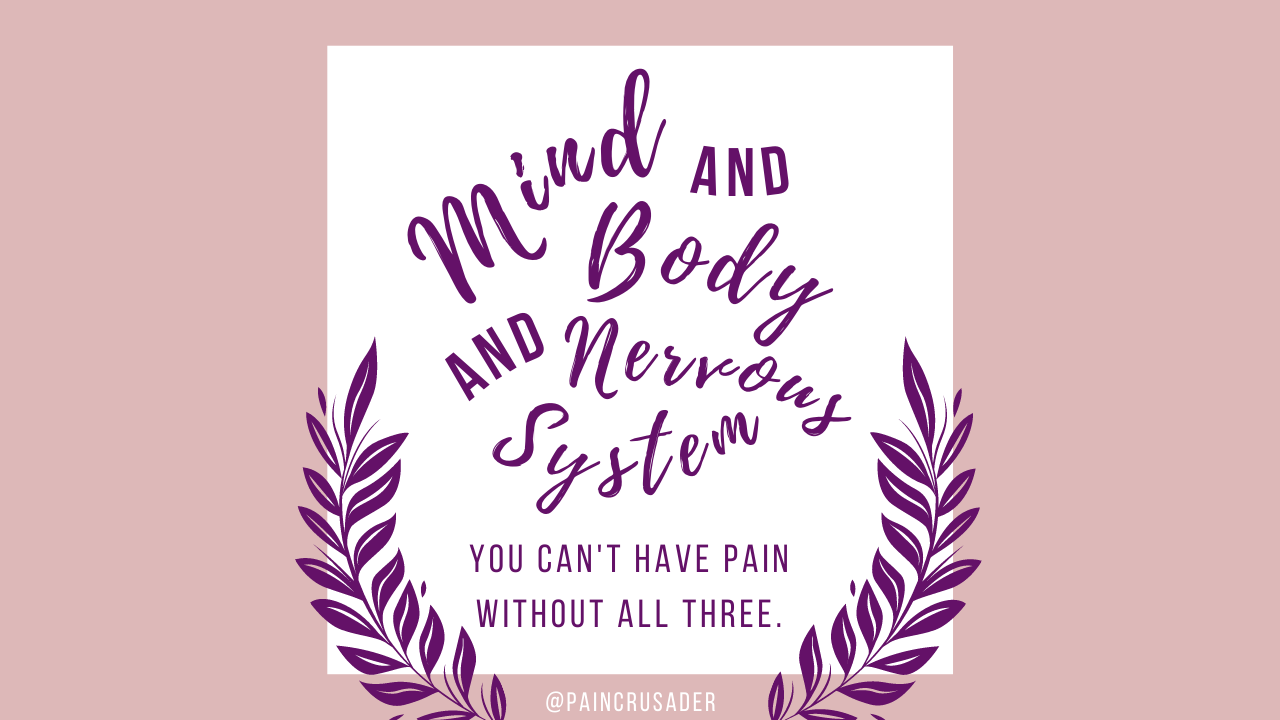
All three aspects together comprise a pain experience. The biomechanical, neurological, and psychological aspects of pain are enmeshed and therefore our treatments should not focus only on one aspect.
If your attempts to manage your pain have felt like a band aid, then you're probably stuck in just one approach. And if you're missing a neuroscience component, you'll just keep spinning your wheels.
Are you ready to get to the root of your pain by including a neuroscience based approach? Ready to feel supported & validated?
My program, the Chronic Pain Breakup Method, will give you the tools & knowledge you need get to the root cause of your pain. Click here to learn more!
Get Pain Articles & Neuroscience Nuggets Sent To Your Inbox.
Subscribe to my Blog!






